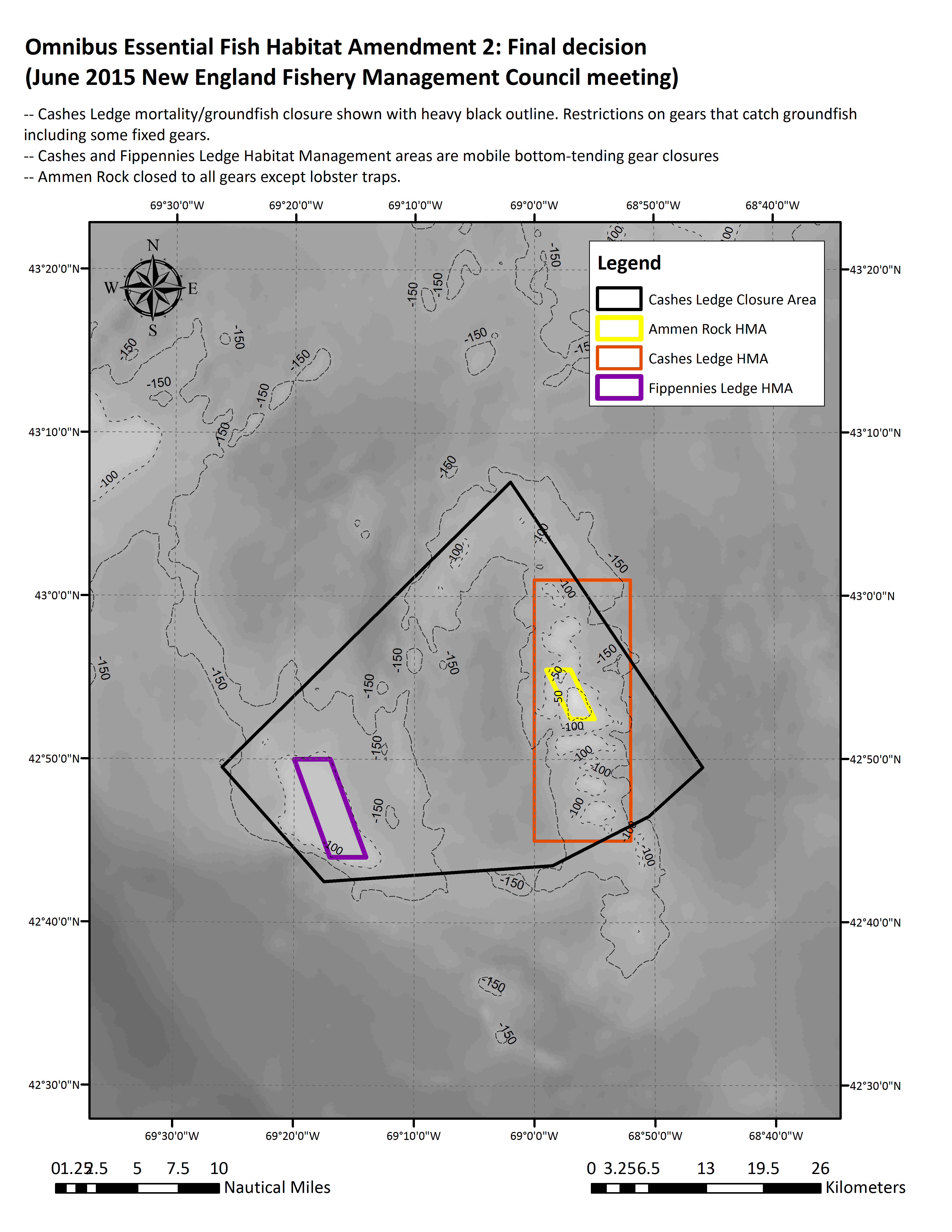WASHINGTON (Saving Seafood) — September 15, 2015 — Tonight, at a NOAA town hall meeting in Providence, Rhode Island, representatives from two of the largest fishing industry organizations in New England presented a letter that will be sent to President Obama opposing calls for a new marine National Monument in the waters off the coast of New England.
READ SAVING SEAFOOD’S ANALYSIS OF THE NEW ENGLAND MARINE MONUMENT PROPOSAL
Drew Minkiewicz, of the Fisheries Survival Fund, and Jackie Odell, Executive Director of the Northeast Seafood Coalition, will present the letter. In just 24 hours, over 630 fishermen, seafood industry workers, and members of our nation’s fishing communities have signed the letter. Signatures will continue to be collected, and the letter will be submitted to the White House, with copies to the Secretary of Commerce, the Administrator of the National Oceanic and Atmospheric Administration, and the Administrator of the National Marine Fisheries Service.
The meeting in Providence is being called to discuss the possibility of declaring Cashes Ledge, as well as the New England Canyons and Seamounts, as National Monuments. The signers of the letter strongly oppose the proposal as unnecessary and harmful to current management efforts. The letter notes that Cashes Ledge is currently protected, as has been so for over a decade. It also notes a National Monument designation, which would result from unilateral Presidential action under the Antiquities Act, would remove the areas from the open, democratic regulatory process that is currently responsible for managing them.
The Fisheries Survival Fund represents the majority of the full-time Limited Access scallop fleet. The Northeast Seafood Coalition represents members of the commercial groundfish fishery in New England.
The Northeast Seafood Coalition is a non-profit membership organization representing commercial fishing entities in the northeastern United States on political and policy issues affecting their interests as participants in the multispecies (groundfish) fishery.
The text of the letter is reproduced below:
We, the undersigned, in conjunction with the Fisheries Survival Fund and the Northeast Seafood Coalition, object to any attempt to manage New England’s offshore marine habitats through the use of the Antiquities Act and the designation of National Monuments. Doing so undermines the public and democratic processes that are now in place to manage these areas, shuts out important stakeholders, and prevents meaningful outside input. Considering that the current public process has led to the substantial habitat protections already in place throughout the region, such a designation is both unnecessary and damaging to the long-term management of these areas.
New England’s marine habitats are currently managed through a consultative process that considers the experience and input of expert scientists, fishermen, environmentalists, and regulators. It is where the best available science and analytical approaches are vetted in an open and transparent venue. Large-scale closures, enacted by executive fiat and not based in science, are not only undemocratic but they can have substantial unintended adverse impacts on bycatch composition, region-wide habitat, and the economies of coastal communities.
Recent actions by the New England Fishery Management Council (NEFMC), specifically the recently passed Omnibus Habitat Amendment 2 (OHA2) reinforce habitat protections in New England waters into the foreseeable future.
In addition to protecting features such as the kelp forests on Cashes Ledge under OHA2, the regional management councils have gone to great lengths to further safeguard essential habitats such as corals. The NEFMC is considering the Deep-Sea Coral Amendment, which would preserve the coral habitats in the New England Canyons and Seamounts, areas that have also been frequently under discussion for National Monument designation. The Mid-Atlantic Fishery Management Council (MAFMC) also recently acted to protect over 38,000 square miles of deep-sea coral. These are clear demonstrations that current habitat management is remarkably sensitive to conservation and the need to protect unique habitats.
Replacing this collaborative, open management with top-down Presidential action undermines these successful efforts. It makes it less likely that local voices are heard in the deliberations, narrows the decision-making process from broadly democratic to single-handed, and in consequence disregards crucial stakeholder input and expertise. It ultimately results in a regulatory process that is not responsive to feedback and is not accountable to the people who are most affected by it.
As members of the fishing communities whose livelihoods depend on inclusive, responsive management we recognize that such a fundamental altering of the regulatory process is unacceptable. Any management of public resources needs to preserve public input and involvement, not disregard it. We oppose unilateral Executive Action to declare marine National Monuments in New England.
Click here to add your name to the letter

